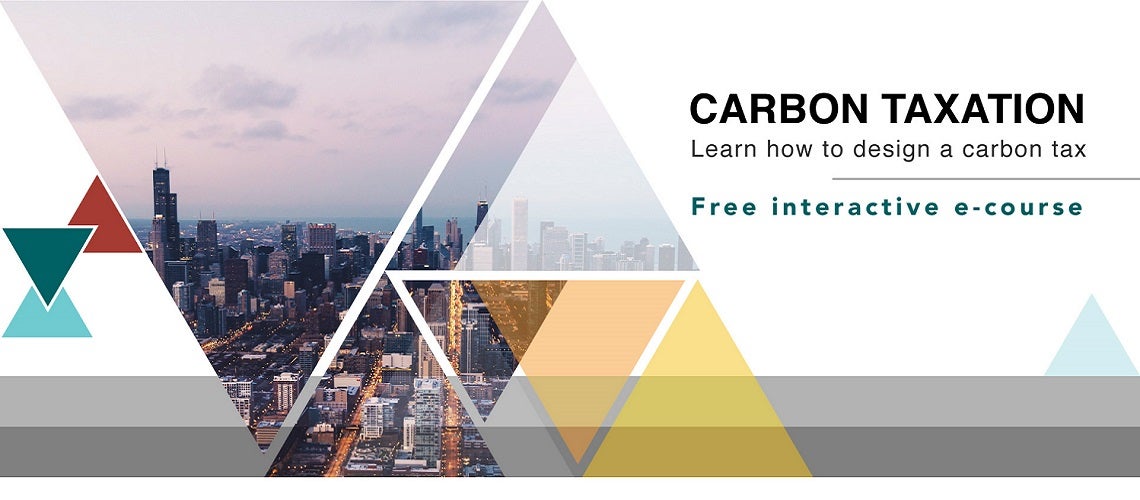 Carbon taxation e-course flyer
Carbon taxation e-course flyer
A few weeks ago, the Partnership for Market Readiness (PMR) – a World Bank program that helps developing countries design and put carbon pricing policies in place – delivered an e-course on Carbon Taxation. Over the course of five weeks, participants were guided through video presentations on the key building blocks of carbon tax design. In the first week, participants were introduced to the concept of carbon pricing and a carbon tax more specifically. We can all grasp the idea that if you make something more expensive, people will use less of it. As participants wrapped their heads around the mechanics of a carbon tax in the first few weeks, the threads in the discussion forum focused on the practical applications of carbon pricing: how does a tax get us to a cleaner future?
A carbon tax can be a relatively simple and efficient way of getting companies to reduce their emissions but putting a price on carbon is only one lever we will need to pull. Regulations, information campaigns, investments and R&D programs will also be needed in order to get the kind of widespread infrastructure, technology and behavior changes to tackle climate change. Figuring out the role a carbon tax would play in your policy mix and how it interacts with other policies is an important prerequisite.
The next few weeks looked at the political realities of a carbon tax. A well-designed carbon pricing instrument makes the social, environmental and economic damage of pollution explicit. A carbon tax can also be designed to be a fair one. As the last two weeks of the course covered, additional measures can be put in place to ensure that lower-income households and communities are protected and not overly burdened by the policy. This could include rebates or funding subsidies and programs that reduce energy bills or fund public transport programs, for instance, which would make a carbon tax progressive. In a time where developing countries are struggling to mobilize domestic resources, a carbon tax could help close this gap, providing funding for other development and policy needs.
Building trust in the government and the carbon tax will also be critical. While clear and early communication is helpful, citizens need to be confident that the revenues collected will be distributed fairly and as promised. Transparent communication and building visible structures for collection and redistribution is important. In addition, demonstrating the results of the carbon tax and its funded programs, can build support for the policy over time.
The launch of the Carbon Taxation course was well received and was a step beyond an instructional classroom setting. As the discussion forums, with around 1154 posts, highlights, the learning experience was enhanced by the debates between participants and their willingness to share their own reflections and experiences on how a carbon tax could work in their own countries.
At the end of the course, the analytics gathered showcases the mounting interest and demand for the course despite the radical disruptions to everyday life, our economies and social connections caused by COVID-19. Close to 450 people signed up for the course from countries across the globe, that includes – Brazil, Colombia, Nigeria, Senegal, India, Singapore, Laos, Germany, Switzerland, Cote d’ Ivoire, Mexico, Indonesia, Bulgaria, Ukraine, Turkey, Ghana to name a few. Around a third of those completed the full course and around 75 participants are waitlisted for the next delivery of the e-course. The combined factors of a growing international interest in climate change action with the active facilitation and interactivity of the course has made the carbon tax e-course one of the most popular on the World Bank’s e-learning platform.
The Carbon Taxation course is now open and available in self-paced format and we look forward to meeting you in the course!
Special thanks go to Professor Ken Richards from Indiana University for facilitating the course, as well as UNITAR and Climate Focus for designing the course.
Producing and disseminating knowledge is a key component of the PMR. Visit our knowledge center for additional resources: https://www.thepmr.org/content/knowledge-center



Join the Conversation